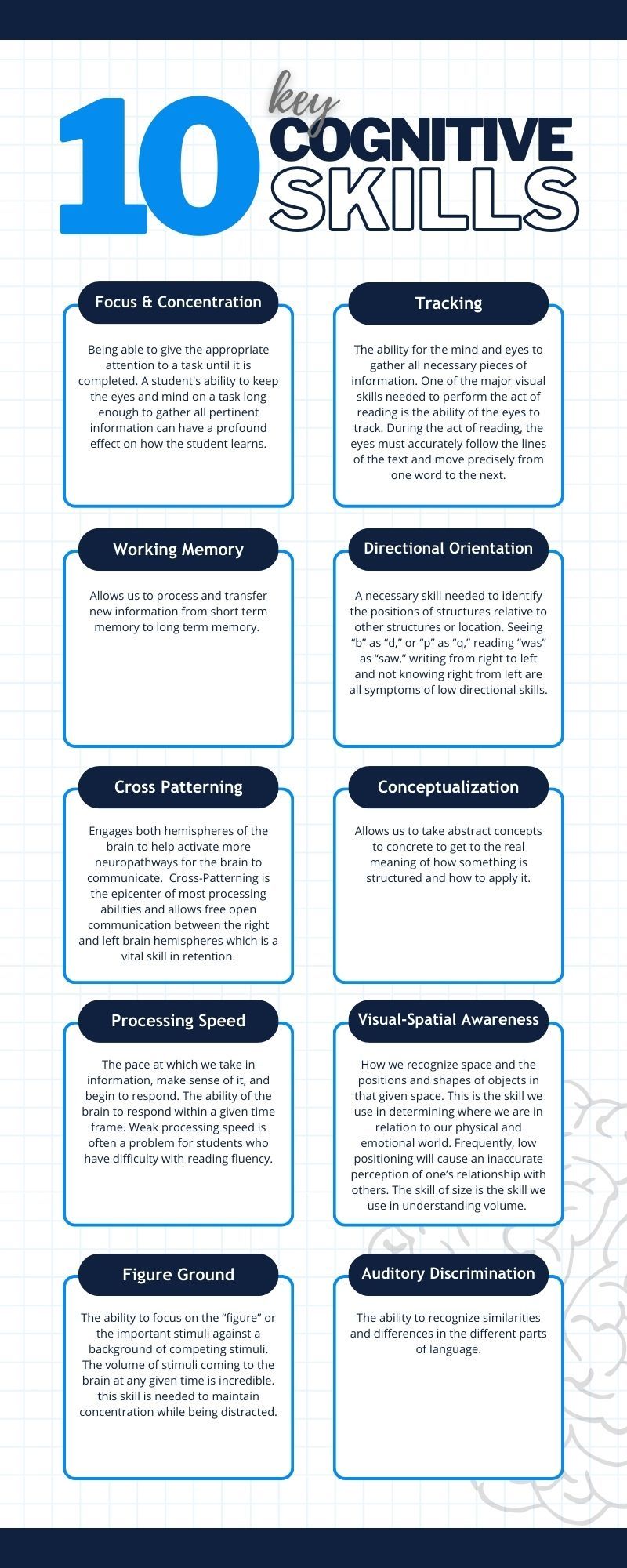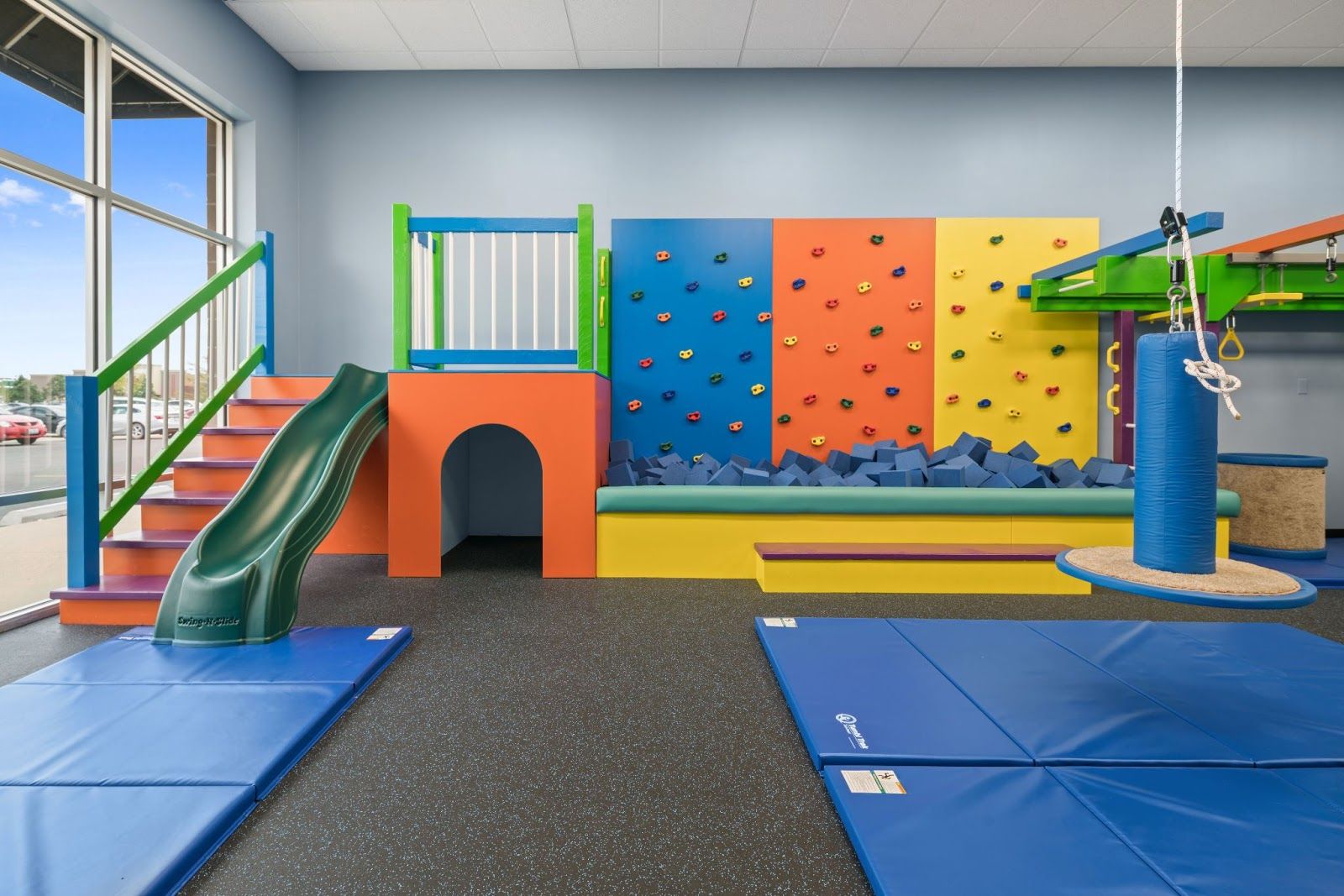What is the Cognitive Skills Program?

Cognitive skills are the core skills that our brain uses to
pay attention, read, think, learn, remember, and reason. These skills can be weak for many reasons including brain injury, neurological disorders or mental illness but most commonly it is simply due to that part of the brain not developing properly in utero. We often see weak cognitive skills in people with ADHD.
If you want to be stronger in a particular area, it's important to exercise that area, right? That's how it works for physical activity and it's the same for mental activity. The BrainWorks Cognitive Skills program helps develop 10 Key cognitive skills that are essential to learning. Through an integrative approach and interactive exercises the student stays engaged and is able to strengthen these skills.
Improvements in reading, writing, memory, ability to focus, differentiating, processing and overall confidence are often a result of our program.
The Logistics
To see some of the exercises in practice, view the demo video below:
What is Occupational Therapy?
 Occupational Therapy is a bit of a different ballgame.
Occupational Therapy is a bit of a different ballgame. We're going to talk about Occupational Therapy (OT) for kids since that's who most of us are here for. Occupation equates to a person's everyday activities and for kids it looks pretty much like this...
-eating meals
-brushing teeth
-dressing
-tying shoes
-climbing and playing on a jungle gym
-going to the bathroom
-taking a test at school
-playing with friends
-riding a bike
OT helps people who struggle to do everyday tasks because of poor motor skills. For kids, that includes tasks that are part of learning and functioning well at home and at school. OT works on the skills kids need to do the things they struggle with, from zipping their coat to writing and typing. The need for it could stem from injury or illness and is commonly needed for children with developmental delays.
The Logistics
Where to Start
Your first step is to really delve into what your concerns are. Are you more concerned with the day to day ability to complete lifestyle tasks? Or is your concern more on how your child is learning and retaining information? The ability to focus? The love (or lack thereof) of learning?
It's always a good idea to speak to your pediatrician about your concerns because they can provide a full assessment and make recommendations. That being said, many pediatricians are simply unaware programs like ours exist so while they can make informed recommendations be aware they don't know about every option available. If they don't know about it they can't recommend it, right?
Be an advocate for your child. There are many battles they will need to face on their own but this isn't one of them. They need you to ask questions, look for solutions, commit to the time and financial aspects and move forward to provide them all the help that is available.
Be an advocate for your child. There are many battles they will need to face on their own but this isn't one of them. They need you to ask questions, look for solutions, commit to the time and financial aspects and move forward to provide them all the help that is available.

